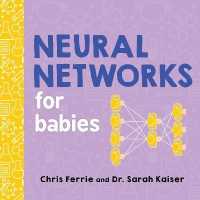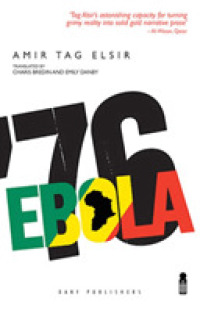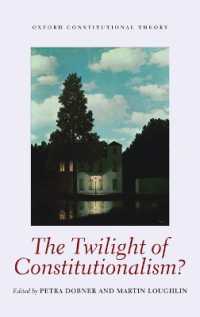- ホーム
- > 洋書
- > 英文書
- > Religion / Ethics
基本説明
New in paperback. Hardcover was published in 2010.
Full Description
Robert Wuthnow has been praised as one of ¨the country's best social scientists¨ by columnist David Brooks, who hails his writing as ¨tremendously valuable.¨ The New York Times calls him ¨temperate, balanced, compassionate,¨ adding, öne can't but admire Mr. Wuthnow's views.¨ A leading authority on religion, he now addresses one of the most profound subjects: the end of the world.
In Be Very Afraid, Wuthnow examines the human response to existential threats--once a matter for theology, but now looming before us in multiple forms. Nuclear weapons, pandemics, global warming: each threatens to destroy the planet, or at least to annihilate our species. Freud, he notes, famously taught that the standard psychological response to an overwhelming danger is denial. In fact, Wuthnow writes, the opposite is true: we seek ways of positively meeting the threat, of doing something--anything--even if it's wasteful and time-consuming. The atomic era that began with the bombing of Hiroshima sparked a flurry of activity, ranging from duck-and-cover drills, basement bomb shelters, and marches for a nuclear freeze. All were arguably ineffectual, yet each sprang from an innate desire to take action. It would be one thing if our responses were merely pointless, Wuthnow observes, but they can actually be harmful. Both the public and policymakers tend to model reactions to grave threats on how we met previous ones. The response to the terrorist attacks of 9/11, for example, echoed the Cold War--citizens went out to buy duct tape, mimicking 1950s-era civil defense measures, and the administration launched two costly conflicts overseas.
Offering insight into our responses to everything from An Inconvenient Truth to the bird and swine flu epidemics, Robert Wuthnow provides a profound new understanding of the human reaction to existential vulnerability.
Contents
INTRODUCTION; NOTES; SELECTED BIBLIOGRAPHY; INDEX








